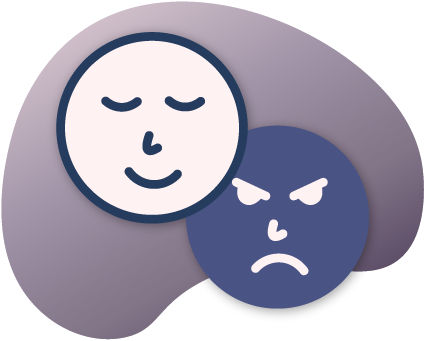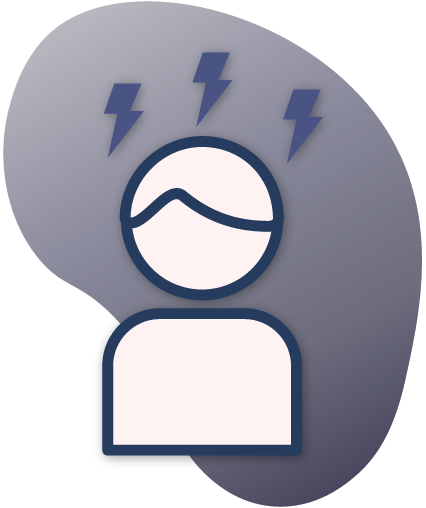This blog was provided by the experts at Addiction Rehab Treatment – a third-party information service for consumers dealing with addiction or seeking treatment information and practices. Visit their website at addictionrehabtreatment.com to learn more about mental health disorders, how they are treated, and how to get help if you or a loved one suffers from mental illness.

What Is Trauma?
Trauma is something that many people will experience. It’s the result of a stressful event or ongoing situation that threatens someone’s sense of security – creating a sense of helplessness for the individual. Emotional and psychological trauma can result in long-term effects like disturbing memories, substance abuse, panic attacks, anxiety, and more. It could also make people feel disconnected, detached, numb, and cautious of those around them.
Traumatic experiences vary hugely and something that could be extremely traumatic for one person could be a mere inconvenience for the other. Often, a traumatic event involves some sort of threat to safety or life, but it could also be an event that leaves someone feeling isolated, threatened, or overwhelmed.
At the end of the day, trauma isn’t defined by the objective circumstance of the event, but rather it’s the subjective emotional experience of the individual experiencing the event. The more the event makes someone feel threatened, frightened, helpless, or emotional, the more likely it is that they will experience symptoms of trauma down the line.
We’re going to look at the things that can cause trauma, as well as the most common signs and symptoms that could indicate that someone is struggling to cope with a traumatic situation.
What Causes Trauma?
As mentioned, the extent of a traumatic event is something that is determined by the individual experiencing it. In general, however, emotional and psychological trauma is often caused by:
- One-time events: Unexpected events that can cause trauma can include things like accidents, injuries, violent attacks, and natural disasters like an earthquake.
- Ongoing, incessant stress: This is stress that reoccurs on a relentless basis. This could be anything from living in a crime-ridden area, living through years of drought, battling a life-threatening illness, or reoccurring events like bullying, domestic violence, childhood neglect, or sexual abuse.
- Overlooked causes: There are some causes of trauma that are often overlooked, this can include things like surgery (particularly in early childhood), the sudden death of a loved one, a breakup or divorce, or even a humiliating experience caused by deliberate cruelty.
Most Common Signs of Trauma
Many people will experience overwhelming emotional and physical reactions during and immediately after a traumatic event. This is the body’s natural coping mechanism when it encounters a perceived threat.
Most people will find that these reactions grow weaker over the days or weeks that follow the event. Some individuals, however, continue to experience severe psychological trauma that could become worse months after the event occurred.
These reactions could be caused by the severity of the event, how available emotional support is, past and present stressors and triggers, personality types, and different coping mechanisms. How we react to trauma is entirely down to the individual; there is no right or wrong way to feel after a traumatic event and people should never be judged on how they react to the experience.
There are no normal reactions to abnormal events, and every person could experience a wide range of physical and emotional responses from their trauma.
That being said, these are just some of the most common symptoms that people experiencing psychological trauma present:

Cognitive Symptoms
The most common cognitive effects shown by people suffering from trauma include:
- Sudden, intrusive thoughts of the event.
- Nightmares.
- Visual flashbacks of the event.
- Difficulty concentrating.
- Memory loss.
- Disorientation.
- Mood swings.
- Confusion.
Behavioural Symptoms
People that are having problems after a traumatic event will usually exhibit the following behavioural changes:
- Avoiding places or activities that reminds them of the event.
- Withdrawal or isolation from loved ones.
- Lack of interest in activities that they previously enjoyed.


Physical Symptoms
These are the physical symptoms commonly presented by those suffering from trauma:
- Startled easily.
- Fatigue and low energy levels.
- Increased heart rate.
- Being on edge.
- Insomnia or oversleeping.
- Tense muscles.
- Sexual dysfunction/impotence.
- Eating more or less than usual.
- Complaints about body aches and pains.
- Always on alert for potential danger.
Psychological Symptoms
People that are suffering from trauma often have the following psychological symptoms:
- An overwhelming sense of fear.
- Development of obsessive-compulsiveness.
- Detachment.
- Emotional numbness and disconnect.
- Depression.
- Guilt.
- Shame.
- Shock.
- Irritability and anger.
- Heightened anxiety.
- Panic attacks.
- Increased risk of substance abuse.

Healing from Trauma
Trauma symptoms are mostly experienced for just a few days to a few months and will gradually fade as the event is processed. Of course, it’s still possible to feel the effects of trauma down the line on anniversaries or when something reminds the person about the event.
Suppose trauma systems continue to overwhelm a person or become worse over time, and they are struggling to move on with their everyday lives. In that case, the person could be experiencing Post-Traumatic Stress Disorder (PTSD).
When trauma results in PTSD, it inhibits the natural way that the body and mind process a traumatic event and causes the nervous system to become “stuck.” Surviving a traumatic event, even if it doesn’t involve death, creates a temporary loss of safety.
Our natural reaction to loss is grief, and those that have been through a traumatic event will have to go through the grieving process in order to heal from the trauma and move on.
Trauma Recovery Tips
Whether it’s been a few days, a few weeks, or a couple of months, there are some things that people can do to help themselves heal from trauma and lessen the effect that they are having on their everyday lives. Here are just some activities that can help people recover from trauma:
- Exercise: Just 30 minutes or more of exercise a day can help to restore the body’s natural equilibrium. Exercise burns off excess adrenaline and releases endorphins.
- Don’t isolate: As tempting as it may be, it’s important that people don’t isolate themselves after a traumatic event. They should engage with their support circle, participate in activities, or even try joining a volunteer cause.
- Self-regulation: People with trauma are most likely feeling agitated, anxious, or out of control, but it’s essential to try and change the arousal system to learn how to calm itself. Activities like yoga, meditation, and mindful breathing can help to relieve some of the anxiety associated with trauma.
- Improve health: A healthy body improves our ability to handle stress and trauma. It’s essential to get high-quality sleep, eat healthy foods, try to avoid alcohol, and reduce stress in everyday life, where possible.
Get Professional Help
Trauma recovery has not got a definitive timeline, and everyone heals at their own pace. However, if months have gone by since the traumatic event and symptoms are still present, or even getting worse, then it’s time to get in touch with a trauma expert for professional help.
Processing and healing from trauma can be a painful, scary, and uncomfortable process, so it’s important that it is done with the help of an experienced professional. A trauma expert will know exactly how to slowly move through the process and use various methods to help their patient heal according to what suits the individual best.
Source:
https://addictionrehabtreatment.com/mental-health/trauma/signs-and-symptoms-of-trauma/
